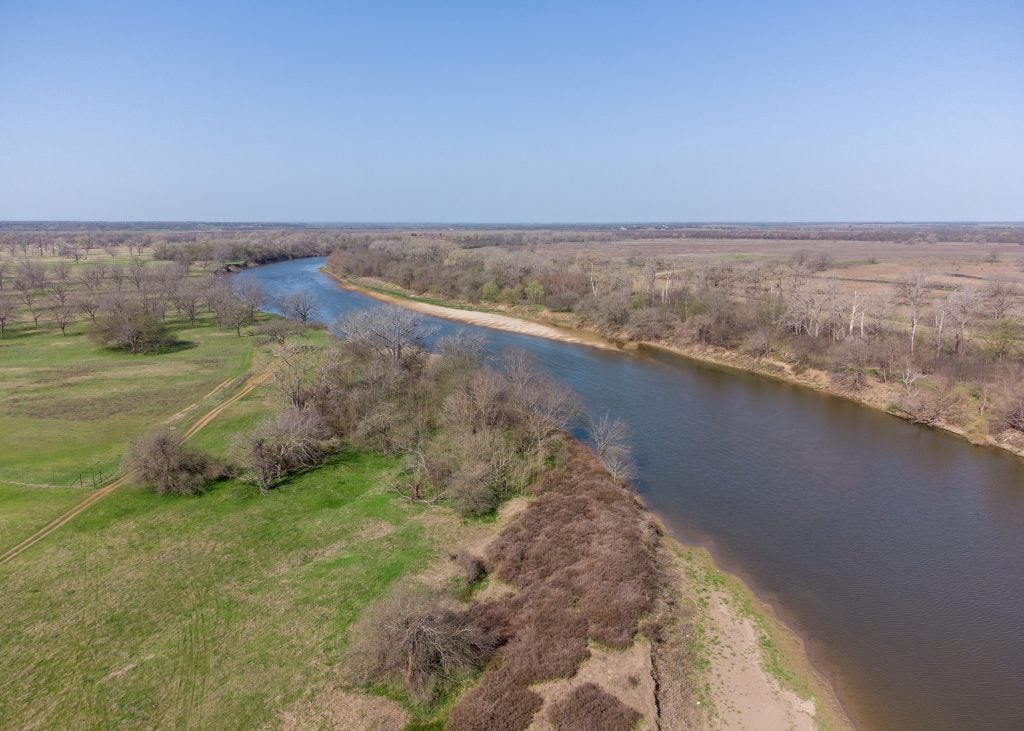As Texas drought worsens, two bills can advance sustainable, equitable groundwater management
Drought conditions are now confronting 75% of Texas, putting more pressure on critical water supplies.
Thirty-two cities or water supply entities in Texas are under voluntary or mandatory water restrictions. Flows in a majority of river basins across South Central Texas have dropped below or far below normal. And the Edwards Aquifer, which stretches across thousands of acres in South Central Texas and serves San Antonio, has dropped nearly 10 feet below average levels for March.
Amid this grim news, state lawmakers have the opportunity to take two important steps toward more sustainable and equitable management of vital water resources.
HB 2652: A step forward on holistic water management
House Bill 2652, authored by Rep. Lyle Larson (R-San Antonio), creates a surface water and groundwater advisory board to study and develop approaches to address challenges related to groundwater and surface water interactions in Texas.
The advisory board would be comprised of representatives from the Texas Water Development Board, the Texas Commission on Environmental Quality, groundwater conservation districts and river authorities, as well as one appointee representing environmental interests.
Currently, Texas law has no requirement that prevents groundwater pumping from negatively impacting surface water resources, such as rivers and streams.

An archaic case from 1951, Pecos County Water Control and Improvement District v. Clayton Williams, allowed one landowner in Pecos County to pump so much groundwater that it dried up Comanche Springs and the water that hundreds of downstream farmers and families depended on. It’s still the law in Texas today.
Consequently, flows in rivers across the state, from the Brazos to the San Saba, are declining, threatening downstream communities and the ecology and economy of the state.
Yet, as Rep. Larson recently pointed out during a hearing on HB 2652, Texas is suing the state of New Mexico because New Mexico’s groundwater pumping is decreasing Texas’ water in the Rio Grande — the same reason the Pecos Water District sued Williams and lost.
Policy that allows groundwater pumping to such an extent that it reduces flows in our rivers is not good policy. Creating a surface water and groundwater advisory board is a first step for Texas to improve this policy by gaining a better understanding of the complexities related to managing these two interconnected water resources.
HB 3619: New protections to small well owners
HB 3619, authored by Rep. Rhetta Bowers (D-Garland), requires groundwater conservation districts to consider impacts to exempt wells when evaluating whether to issue a groundwater production permit. It passed out of the House last week and is now in the Senate.
As 75% of Texas faces drought, here are two steps state leaders can take toward more sustainable and equitable management of vital water resources. Share on XIn Texas, exempt wells are domestic and livestock wells and are primarily located where centralized water infrastructure does not exist, serving as the sole source of water for rural communities across the state. As groundwater levels decline, these rural wells are increasingly impacted by large groundwater production permits.
Currently, groundwater conservation districts are required to consider impacts to other permit holders when issuing new permits, but they are not required to consider impacts to smaller wells. HB 3619 ensures that groundwater conservation districts consider smaller well owners when issuing permits, ideally managing groundwater more equitably in a way that protects the resource for all.
As water supplies face greater stress from drought and other pressures such as population growth, HB 2652 and HB 3619 are important steps toward developing a Texas solution to the state’s groundwater challenges that preserves the state’s rural communities, natural resources, economy and livelihoods.











One Comment
It appears to me that Lyle Larson and some other State legislators would like to regulate the water that is rightfully yours and end up taxing you for it!~ NO